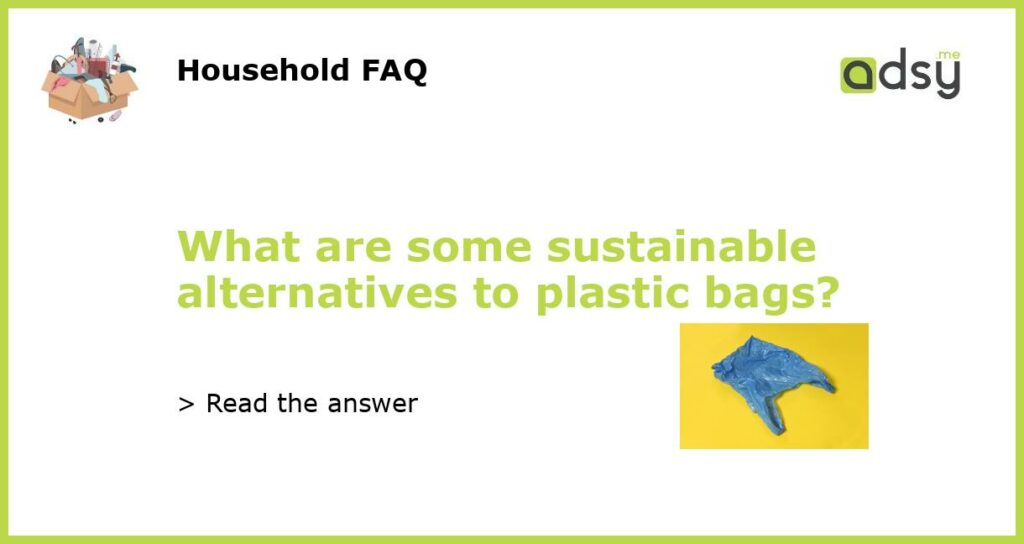Sustainable Alternatives to Plastic Bags
Plastic bags have become a significant environmental issue due to their negative impact on wildlife and their contribution to plastic pollution. Many countries and cities around the world have implemented plastic bag bans or taxes to reduce their usage. In response to this, there has been a rise in the development and use of sustainable alternatives to plastic bags. These alternatives are designed to be reusable, biodegradable, or made from eco-friendly materials. Here are some of the most popular options:
Reusable Cloth Bags
Reusable cloth bags are an excellent alternative to plastic bags as they can be used multiple times. These bags are typically made from materials such as cotton, canvas, or jute, which have a much lower environmental impact compared to plastic. They are strong, durable, and can carry heavy loads, making them suitable for grocery shopping or carrying everyday items. Some stores even provide incentives for customers who bring their own reusable bags, encouraging more people to make the switch.
Paper Bags
Paper bags are another sustainable alternative to plastic bags. They are made from renewable resources such as trees and can be recycled multiple times. Unlike plastic bags, paper bags are biodegradable and break down more easily in the environment. However, it is important to note that the production of paper bags still requires energy and resources, so it’s essential to reuse or recycle them to minimize their impact.
Biodegradable Bags
Biodegradable bags are designed to break down more quickly in the environment compared to conventional plastic bags. They are made from materials such as cornstarch, vegetable oils, or other plant-based materials. These bags can decompose through natural processes, reducing their impact on land and marine ecosystems. However, it’s essential to differentiate between biodegradable and compostable bags, as compostable bags require specific conditions to break down properly, such as high temperatures found in industrial composting facilities.
Compostable Bags
Compostable bags are designed to be broken down through composting processes, resulting in nutrient-rich organic matter. These bags are typically made from bio-based materials like plant fibers or bioplastics derived from renewable resources. Compostable bags can be added to compost piles or sent to industrial composting facilities where they can decompose without releasing harmful substances into the environment. It’s important to check for compostability certifications, such as the “compostable” logo, to ensure that the bags meet specific standards for compostability.
Bulk Shopping Bags
Bulk shopping bags or mesh produce bags are specifically designed for shopping in bulk or purchasing loose produce. These bags are made from lightweight, breathable materials, making them ideal for storing fruits, vegetables, grains, or nuts. By using bulk shopping bags, consumers can reduce the need for plastic packaging and avoid single-use plastic bags at grocery stores. These bags can be reused multiple times and are often machine washable, ensuring they remain clean and hygienic for future use.






